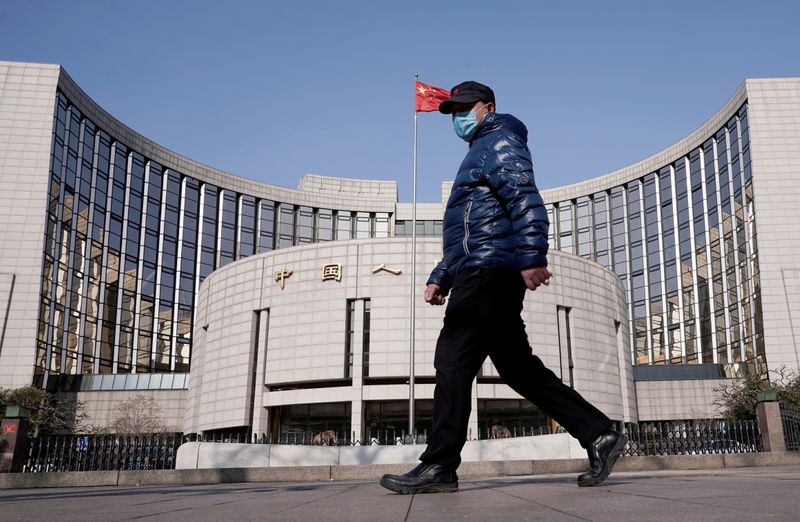SHANGHAI (Reuters) -China kept its benchmark lending rate for corporate and household loans unchanged at its December fixing on Monday, as expected, although improving economic fundamentals have raised speculation about a rate hike next year.
The one-year loan prime rate (LPR) was kept at 3.85%, while the five-year LPR remained at 4.65%. The rates have been unchanged for eight straight months.
For the year, the one-year LPR was down a total 30 basis points of rate cuts, and the five-year rate was cut by 15 bps of two cuts in 2020.
Most new and outstanding loans are based on the LPR, while the five-year rate influences the pricing of mortgages.
All 34 traders and analysts in a snap Reuters poll conducted last week predicted no change in either one-year or five-year LPRs.
The rate decision reflected continued economic recovery from coronavirus shocks in the world’s second-largest economy, and comes after the central bank made its biggest ever injection of medium-term funds last week to shore up liquidity.
The interest rate on those loans was unchanged for the eighth month in a row, after recent corporate bond defaults shattered investor confidence and scuppered new issuance.
With the economy back on track, some senior central bank officials have repeatedly raised the topic of exiting loose monetary policies recently.
The annual Central Economic Work Conference, a gathering of top leaders and policymakers, said last week that China will maintain support for its economic recovery and avoid sudden shifts in policy to help keep economic growth within a reasonable range.
“The Conference changed the tone of prudent monetary policy to be ‘reasonably proper’, called for a largely stable macro leverage and M2 and TSF growth to be ‘compatible’ with nominal GDP growth,” Wang Tao, chief China economist at UBS, expecting a small policy rate hike in the second half of next year.
Julian Evans-Pritchard, senior China economist at Capital Economics, said in a note that subtle changes in language have flagged forthcoming policy shifts in the past and therefore he expected PBOC policy rates to rise by 30 bps in 2021.
(Reporting by Winni Zhou and Andrew Galbraith; Editing by Tom Hogue and Sam Holmes)



















